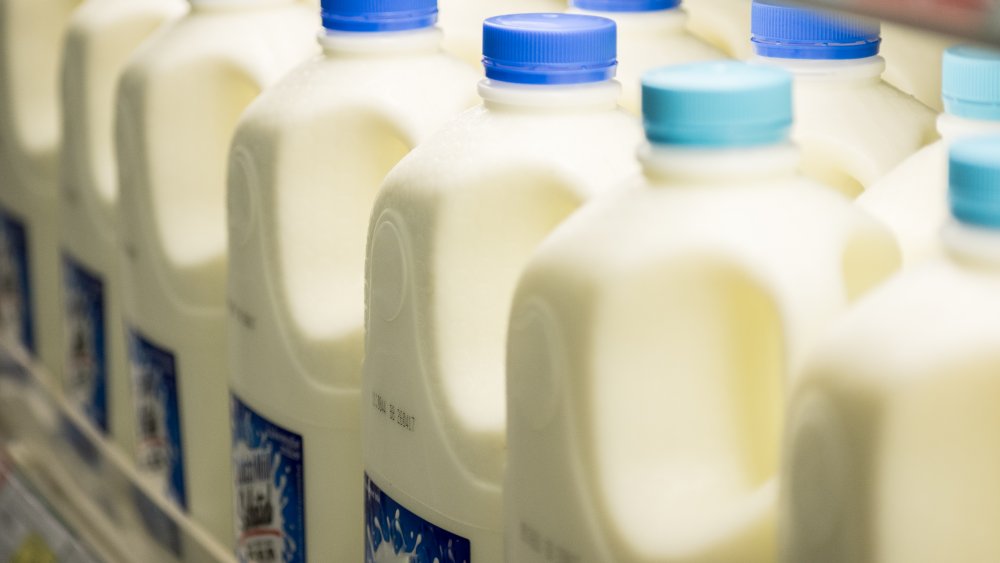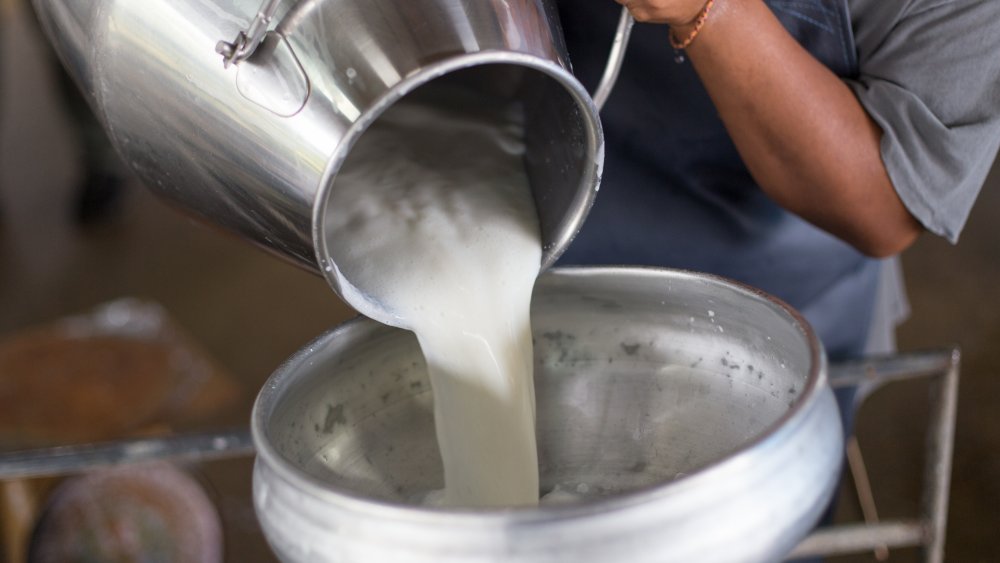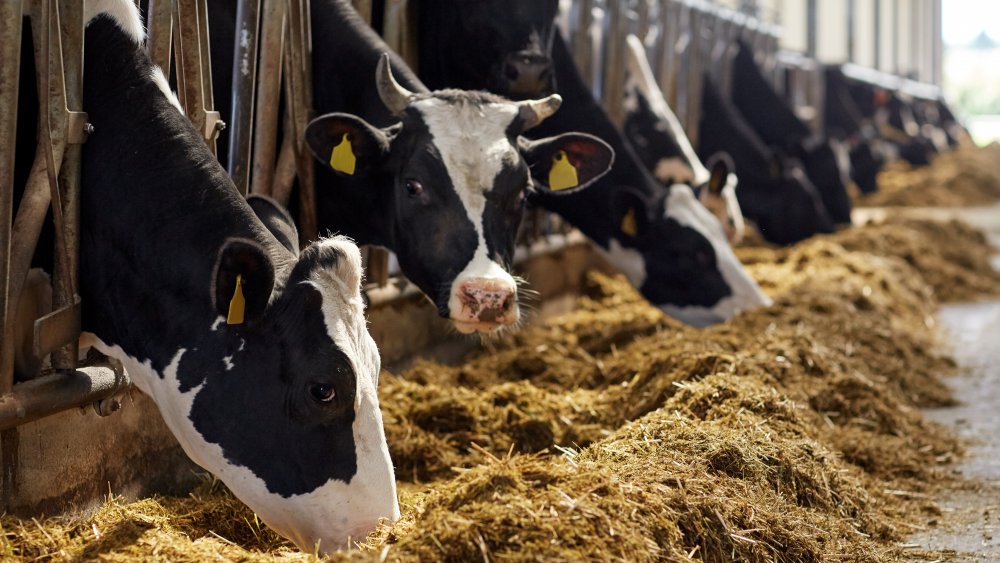How Kroger And Walmart's Cheap Milk Could Change The Dairy Industry
No, you're not dreaming. Cow's milk is the cheapest that it's been for a while, and a lot has to do with your favorite supermarket chain and their willingness to lose money in order to sell you milk you'll want to buy.
While fewer people may be drinking cow's milk thanks to alternatives like soy and oat milk (26 percent less since 2000 to be exact, per Time), the Wall Street Journal says supermarkets like Walmart, Kroger, and Albertsons believe that milk still has plenty of appeal, because if a shopper stops by for the milk, chances are, they'll want to pick up other things too. Borden's former chief executive Tony Sarsam says, "There are retailers who prefer to have really aggressively low prices on milk because it's a great way to get people in the stores."
Kroger's group Vice President for marketing, Erin Sharp, agrees, telling the Wall Street Journal late last year, "Virtually every basket that goes through has milk."
Grocers are now processing their own milk
In order to keep their prices low on what is already considered a loss-making item, the big supermarket chains have ended up opening their own dairy processing plants. WSJ says Kroger is now processing all the fresh milk it sells at a plant in Colorado. Albertsons has done the same and opened a processing plant in Pennsylvania, and they have even said the plant can produce other beverages like orange juice or iced tea when milk demand has dropped.
Albertson's senior vice president for marketing Evan Rainwater says they have more flexibility than traditional dairy processors. "You can do a lot more in a dairy plant than make dairy," he says. Walmart also opened its own plant in 2018, which resulted in reduced dairy costs, more efficient delivery times, and longer product shelf lives as a result. "This work is an example of how we are always finding efficiencies within the supply chain to deliver on our commitments to everyday low prices and high-quality groceries," Walmart spokeswoman, Delia Garcia told the Wall Street Journal.
Some dairy industry giants have gone bankrupt as a result of these changes
But there are consequences to these business decisions. Efficiencies aside, Walmart's dairy plant meant that Dean Foods had to cut 100 million gallons of milk from the 2.6 billion it sold each year. It also meant dairy processing plants operated by Dean Foods would have to close as a result, and some have.
This sea of change in the way milk is now being sourced and processed has changed the face of the country's America's $40 billion dairy industry. Former dairy giants Dean Foods and Borden Dairy had to declare bankruptcy, which they did in November 2019 and January of this year respectively. The Wall Street Journal reports that they have been sold, and Borden told The Guardian that 2,730 dairy farms went out of business in the 18 months prior to January of this year.


